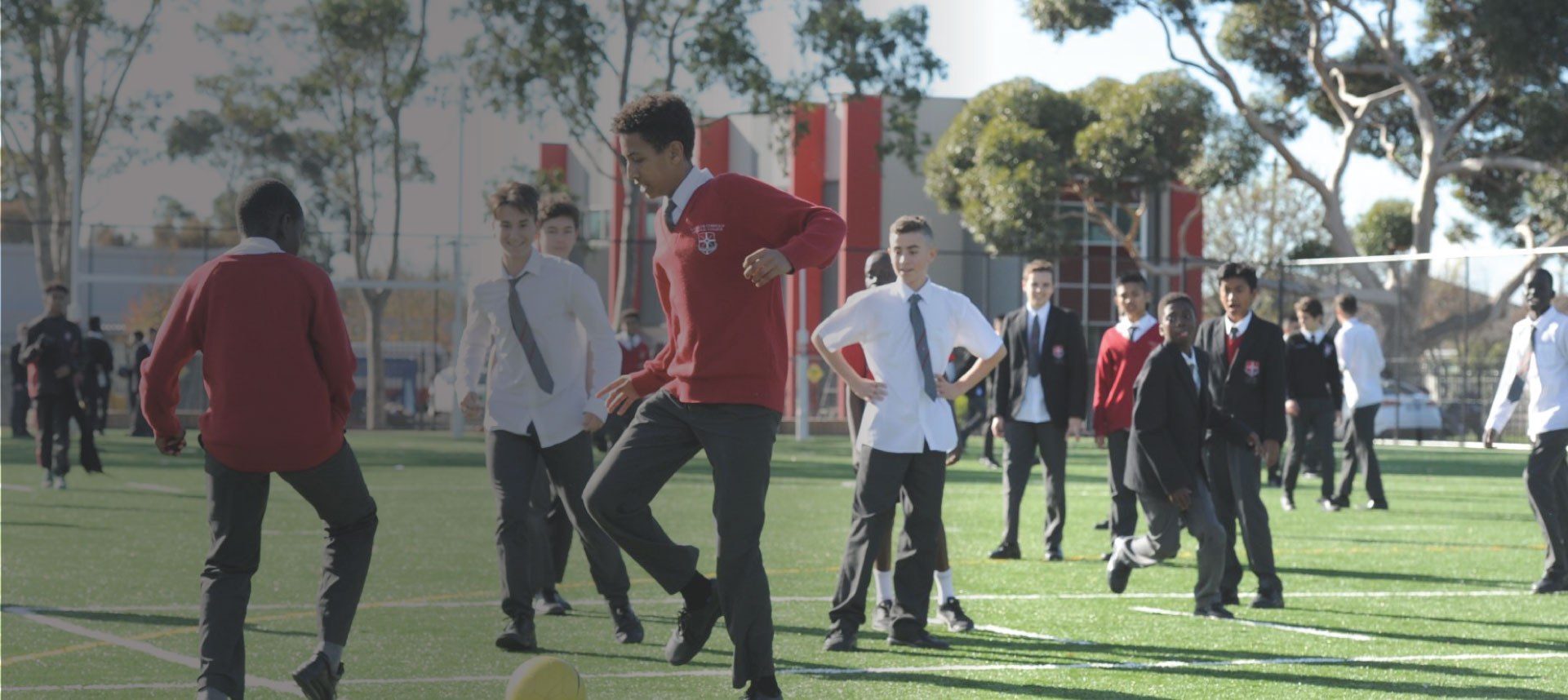

From the Principal
Dear Parents and Carers,
Thank you for the ongoing support of the College and the education of your child. Term 2 concludes, and it gives me great pleasure to reflect on all the key events that we have experienced as a community. The future looks bright with the anticipated start to construction of the VET/STEM Building scheduled to start at the end of Term 3 and the repairs to the Quin Auditorium to begin soon after.
Please note that the College Office will be closed on the second week of the holidays, so please ensure to attend to any matters in the first week, should you need to contact the school.
During the awards assembly, I provided the students with the following speech. I share this with you because I believe that there is relevance in what we all aim to achieve with the students, in partnership with you.
Enjoy the holidays and may God bless you, always. _ _ _ _ _
Good morning fellow staff and students,
I hope that you are all looking forward to your well-deserved break. How good are you all? Those receiving awards today, those being recognised for other talents, those serving without making too much noise, those working behind the scenes as always, and those turning up and giving things a go despite the challenges that you may face. You are all highly inspiring people. In addition, how good are your teachers and the rest of the staff? We are all so lucky to be part of this wonderful community.
What a great term we have shared, whether it be as a Year 12 student leading the college by example as you get ready for your last term of school or as a Year 7 student still learning to adjust to the demands of high school, you have all made Caroline Chisholm Catholic College a great place to study, to learn, to teach, and to be a part of.
Today, I want to take you on a reflective journey, one through the evolution of education over the last hundred years. The key reason for this is to outline a very simple, yet important message, that despite the advances we make in our civilisation, we continue to be empowered by our innate qualities, potential and nature.
I have lived through an education that has extended from chalkboards to chatbots, from textbooks to tablets, from paper print to 3D imagary, and despite this, the way we learn continues to be underpinned by our human spirit and its natural need for curiosity and connection. In the last 100 years, education has been transformed dramatically.
As a young man, I was always impressed with the work of Lev Vygotsky, a Russian psychologist who taught us that learning is a social process. He introduced the Zone of Proximal Development, the concept that has developed into what is known to be collaborative project-based learning. Many of you, I am sure, have come across this type of learning in earlier years. The ZPD is the space that exists between what a learner can do alone and what they can achieve with guidance. Vygotsky’s work reminded us that education isn’t just about facts; it’s about relationships, mentorship, and the scaffolding of growth through authentic and relevant learning journeys.
In the next few decades, Jean Piaget, a Swiss psychologist, explored how children think. He did this by observing his own children and identifying correlations between age, development, capacity and readiness to learn. He believed that learning unfolds in stages, and that students actively construct knowledge through their experiences. Piaget’s theory of cognitive development helps us teachers understand that teaching must be tailored to a child’s developmental level, not just their age or grade.
These two psychologists challenged the notion of intelligence being measured by the Intelligence Quotient, or IQ. Their thinking revolutionised not just education, but industries, as the notion of how humans cannot entirely be measured by ranking, since living and functioning in society requires cultural and critical literacies, led to further thought about the purpose of schools and human development.
Then, Howard Gardner, an American Psychologist, challenged the idea that intelligence is more than a ranking, and that context is most relevant when assessing capacity and ability. He proposed the theory of Multiple Intelligences, suggesting that from the linguistic and logical to the musical, spatial, and interpersonal areas of intelligence, we are all blessed to be able to think at our maximum, within the contexts that motivate us. Gardner’s work opened the door to recognising that every student learns differently, and that schools should nurture a wide range of talents.
This is why schools offer so many activities that are embraced by those interested in pursuing their talents through their interests. Think about the sporting stars that represent our school in the SACCSS competitions, those that performed in the assemblies held so far this year, at the recent Winter Musical Concert, or the upcoming Musical?
Think about the courage of the students who respectfully acknowledges our traditional custodians of the land where we live or read the prayer in front of all of us? This not just takes courage but linguistic intelligence. The students amongst you who help mum and dad with chores around the house or look after your young siblings or the elderly display interpersonal intelligence focused on giving.
Many of you speak more than one language, in fact, when I arrived in Australia, I was taught ESL, which is English as a Second Language, because I spoke Spanish as my first language. Since then, we have had the arrival of many people who speak multiple languages, making the subject now known to be EAL, or English as Additional Language. This is to account for people who are linguistically talented. This shows how intelligence is varied, complex and unmeasurable, because the measures used are often limiting when looking at diversity and culture.
I will fast forward to today, and we’re living in a world where Artificial Intelligence is reshaping how we access knowledge. AI can now generate essays, solve equations, translate languages, and even simulate conversations. It’s fast, efficient, and constantly changing by learning and extending itself. But here is the question I want you to consider: in a world where machines can think and do what we are meant to do, what makes us different? What makes us, human?
The answer lies in our Emotional Intelligence, in our ability to understand, manage, and express emotions, and in how we connect with others empathetically. While AI can process data, it can’t feel joy, navigate grief, or build trust. That’s our superpower, that is what humans have that in my opinion, machines will never be able to experience. I base my theory on the presence of a spirit, of a soul, which is something that only we can live.
In his groundbreaking book in the early 90’s, Emotional Intelligence: Why It Can Matter More Than IQ, Daniel Goleman argued that success in life is shaped not just by cognitive intelligence (IQ), but by our ability to understand and manage emotions; our own feelings and our considerations of others.
Goleman identified five key components of EI, our Self-Awareness or ability to recognise our own emotions and their impact, our Self-Regulation or constructive management of emotions to maintain control in difficult and challenging situations, our Motivation in using emotional energy to pursue goals with persistence. In addition, our Empathy or the understanding the emotions of others by acting compassionately when interacting with them, and finally, our Social Skills in building relationships, resolving conflict, and inspiring others.
To achieve success in these areas, it is crucial to enhance our personal capacity in self-awareness, self-regulation, and motivation, as well as to cultivate social competence by developing empathy and social skills.
I mentioned in a newsletter earlier this term, that EI is essential in navigating the challenges of AI and digital life. I stated that “success is shaped by our character, happiness, life-long learning and capacity to relate and be resilient”, all of which are core to EI and your capacity to achieve. I based that view on the message that I am delivering today.
Goleman’s research shows that IQ accounts for only about 20% of life success. The remaining 80% is shaped by factors like emotional intelligence, social context, and resilience. Think about this for a minute. The extensive research shows that your capacity to interact, to self-reflect, to dream and live out those dreams and to be able to deal with setbacks will have a greater impact than your capacity to process, to acquire and respond to new information in a systematic method. Therefore, in a world increasingly driven by technology and automation, EI helps us to build meaningful relationships, to lead with empathy and integrity and to adapt to change and bounce back from setbacks.
At our College, this understanding and appreciation is reflected in our wellbeing programs, in your leadership development, and pastoral care. This is why you are encouraged not just to excel academically, but to grow emotionally and spiritually, because it is believed that success is about character, not just capability. Caroline Chisholm, our patron, believed every person, especially women and immigrants, deserved respect, safety, and opportunity. She advocated for humane treatment of new arrivals and worked to restore dignity to those facing poverty and exploitation. “I promise to know neither country nor creed, but to serve all justly and impartially”, was her commitment.
She focused her efforts on the most vulnerable, the single women, families, and those without support. Her work led to the provision of shelter, employment, and pastoral care, and was a living example of putting the poor first, above all. Caroline Chisholm collaborated with government officials, church leaders, and everyday citizens to build networks of support, seeing community as essential to justice and working across divides to unite people in service. She empowered migrants to participate in society, not just to survive. By helping them find work and settle into communities, she promoted active citizenship and inclusion. This is a true example of working in solidarity with the poor. Her vision extended beyond individual aid. She advocated for systemic change, including better immigration policies and social services, always with the goal of building a more just and compassionate society. You can’t argue that her EI was above all, the most powerful skillset she possessed, despite her education and degree of general intelligence, which although possibly better than most at the time, would be considered confined and restricted by comparison to what we know today.
Caroline Chisholm fought for the rights of migrants but encouraged each person to assume responsibility, helping people to contribute to their new communities with dignity and purpose. These examples make Caroline Chisholm the leader that you and I can be. Irrespective of time and place, leaders don’t use intellectual superiority or class status, real leaders engage with others and make things happen through action, empowerment and education, with a thirst for justice as the motivation.
As students, you’re growing up in a hybrid world; one where it is predicted that you’ll collaborate with both humans and machines. So yes, learn to code, explore AI, and embrace technology. But also, learn to listen, to lead with kindness, and to understand your own emotions. Because the future of education isn’t just digital, it’s deeply human and only you can determine how you will make society better. Furthermore, you will find that in making a difference to society, you will reach higher impact than that which could be done alone, irrespective of academic degrees, of intelligence quotients or standing in society. Fame, skills or social standings can be a platform, but true impact comes not in how popular you are on social media, the number of followers you have or the material value of the clothes that you wear. Your real impact, when all said and done, will be what you did with what you said, and how this was embraced by the people you interacted with, the people you impacted, and the people you led as a result.
Throughout my teaching career, I have learnt to appreciate the legacy and impact of thinkers like Vygotsky, Piaget, and Gardner, and I have tried to remain optimistic of the future ahead of me. However, it concerns me that despite our capacity to use our intelligence to make the world better, we still face wars, poverty, inequity, suffering and in doing so, we lack empathy, love and respect when dealing with others. We must embrace the tools of tomorrow and never forget that the most powerful learning happens when hearts and minds grow together. This is why, our college exclaims that we are many minds, with one heart. This is what Caroline Chisholm did not just profess but, showed to those she was able to help.
Artificial Intelligence is here, and we must not fear it. Nor should we devote ourselves to it as the platform to learn, but rather use it as one important resource that can enhance our capacity to do well. Read, discuss, challenge, understand, engage and respect others. You will learn to navigate the challenges that AI won’t be able to address in your journey if you remain human by being driven by goodness. Trust me, I wish I had known this when I was your age.
Thank you, well done on the term and enjoy your break.
Our College community is very proud of you.
Dr Napoleon Rodezno
College Principal

Student Wellbeing Report
When I reflect on the business of term three, there is so much to celebrate. There have been camps, interschool sports, the Winter music concert, Year 12 Retreat and the Year 12 Formal to mention a few. We finish the term off with our Sacred Heart Day celebration. The students have engaged in Mass, followed by our fair to raise funds for charity and concluding with the much-loved talent quest.
We ask that students reflect on their semester one reports and goals set in preparation for the Learner Mentor and Subject Conferences in term 3. These conferences will be on Wednesday 30th July (3:30pm-8pm) and Thursday 31st July (12pm-6pm) at the 204 Campus. Please see Compass for booking details.
Homework club
A reminder that homework club occurs at weekly at the following times and locations:
- Wednesday afternoons in the BISC (library) at 204 Churchill Avenue from 2:30 pm until 4pm.
- Thursday afternoons at Christ the King Campus in the TISC (library) from 3:15pm until 4pm.
- Thursday afternoons at 204 Churchill Avenue in the BISC (library) at 204 Churchill Avenue from 3:15pm until 4pm.
All students are welcome to attend these sessions. Sometimes your teacher or wellbeing staff member may recommend or ask that you attend.
Counselling
A reminder that we have counsellors available across all campuses for students to access. Students may receive up to 6 appointments based on their needs and support. The counsellors are available between the hours of 8am until 4pm. Please speak to your Learner Mentor or Year Level Coordinator should you need support in booking a time.
Holiday programs
There have been a number of holiday programs posted to compass and in the newsletter. If you are looking for something four your young person to engage in over the break, please see the memos re these wonderful opportunities.
Finally, have a well-deserved term break. We look forward to seeing you all at the beginning of term 3 refreshed and ready to take on the semester.
Stephanie Banks
Deputy Principal, Student Wellbeing

Learning and Teaching Report
As we conclude Term 2, I want to take a moment to recognise the effort, focus, and resilience demonstrated by our students throughout what has been an incredibly busy but productive term. From assessments and examinations to subject selection and rich classroom learning, students have engaged in a wide range of academic and co-curricular activities. Their commitment to their learning is commendable, and I am proud of the way they have represented themselves and our College values.
Recently students in Years 7 to 11 completed their Semester 1 examinations. These assessments are a key part of the academic year, providing students not only with a chance to demonstrate their knowledge and skills, but also to develop resilience, time management, and independent study habits. I hope that the examination period served as a valuable learning experience, offering insight into areas of strength and identifying opportunities for growth.
For our Year 10 and 11 students, the dedicated Examination Feedback Days were designed to support reflective learning. These days are more than just a review of results, they provide a structured opportunity to engage with teacher feedback, ask questions, and begin the next stage of learning with clear direction. I encourage all students to take full advantage of this feedback, using it to inform and improve their approach in future assessments.
Semester 2 classes officially commenced on Tuesday, 17 June. By now, all students will have begun their new subjects and are settling into new classroom environments. The beginning of a new Semester brings renewed energy, fresh topics, and new challenges. I hope that students are embracing these opportunities with a positive mindset and that exciting learning has already begun to take place.
Semester 1 Reports were released to families on Friday, 20 June. These reports offer a comprehensive overview of each student’s academic achievements and work habits over the first half of the year. I encourage all parents and carers to take time to sit down with their child, read through the report together, and discuss areas of celebration as well as areas for growth. Setting clear goals for Semester 2 can make a real difference to student motivation and outcomes.
On Thursday, 3 June, the College held its End of Term 2 Assembly. This assembly provided a wonderful opportunity to celebrate Academic Excellence and Academic Endeavour across the College. It was inspiring to acknowledge the efforts of students who have demonstrated sustained commitment and achievement. Awards were presented to those students who received multiple commendations from their teachers across a variety of subjects, recognising both outstanding performance and consistent effort. All students who received individual commendations will receive their certificates in Learner Mentor sessions during Term 3, as these were not able to be presented at the assembly.
This term also marked the beginning of the Subject Selection process for students currently in Years 8 to 11, as they begin planning their pathways for 2026. Choosing subjects is a significant step in each student’s educational journey. Over the upcoming school holidays, I encourage students to reflect on their interests, strengths, and future aspirations. The 2026 Course Guides are available on the College website and should be used alongside conversations at home and with teachers to make thoughtful, well-informed choices.
Finally, I would like to sincerely thank all students for their hard work, perseverance, and positive engagement throughout what has been a productive and rewarding Term 2. I wish everyone a safe, restful, and refreshing break and look forward to welcoming all students back, re-energised and ready to embrace the opportunities of Term 3.

Faith and Mission Report
There were several items which have taken place in Faith and Mission in the second part of Term 2.
For our Vinnies group, a key focus was on assisting the St Vincent de Paul Winter Appeal. Through generous donations from students, staff and community members, the committee have collected numerous cans and packets of food, many items of clothing and blankets, as well as sanitary products. These items will be donated to the St Vincent de Paul Society who will distribute them to those in need within our community. The College was also able to donate over $1500 towards the appeal which was collected as part of the Casual Clothes Day donations. Thank you to all who contributed. The College was presented with a certificates of appreciation for our contributions at our CTK and 204 Vinnies meeting from members Peter and Helen.
Unfortunately, our annual Winter Sleep Out had to be postponed to next Term, however, great effort had been put in place with organising this event, so those who have already signed up to take part will still have the opportunity. Please keep alert for details regarding the new date.
Our Sustainability and Ecological Justice group have been busy this term planting fruits and vegetables in the college’s garden beds. The plan is once the food has grown we will work with the Social Justice group in harvesting and then donating the food to a relief market run by Duke Street Community House. This is part of the committee’s commitment to address food insecurity within the Brimbank community by living out the Catholic Social Teaching of “option for the poor and vulnerable”.
In the Chapel, First Fridays of the Month masses have been taking place at 8 am on these days, allowing members of our school community to take part in the celebration of the Holy Eucharist. These are hoped to continue in Term 3 with opportunities for staff and students to also be part in the mass, by leading prayers, readings or as altar servers.
Students from the Year 9 cohorts of Christ The King and those of St John’s had their Reflection Day in Week 9 where they travelled to Holy Cross Centre Templestowe on their respective days, with the theme of the day being 'Catch the Wave'.
The College’s sacramental program has also been underway this term. We have various students and a staff members preparing to receive the sacrament of Confirmation early next term. These afterschool sessions have involved information and discussion on the importance of the sacrament and what the candidates are undertaking, which is in continuing, strengthening, confirming and celebrating the gifts of the Holy Spirit received in Baptism. Those who are confirmed in the Catholic faith are from then on true witnesses of Christ, tasked to continuing to spread and defend the faith by what they say and do.
The Brennan fun run was a great success again this year. Students from the social justice group along with several supportive staff assisted in selling sausages and cupcakes raising over $500 towards equality in education with the Smith Family in honour of our late principal Mr Rob Brennan.
The end of Term concluded with our celebration of Feast of the Sacred Heart of Jesus, a very important day in the College calendar. From a religious perspective, the Sacred Heart of Jesus represents more than just a symbol, it is a profound reflection of God's boundless love for humanity. The Sacred Heart is not just about a heart of flesh but a heart of divine love. It is a heart that loves beyond measure, a heart that understands our weaknesses, our struggles and our imperfections. When we look at the image of the sacred heart we are reminded that God's love is pure unending and unconditional.
As a College, it is a day when we celebrate our founders, The Religious of the Sacred Heart of Jesus and the Brothers of the Sacred Heart. The day commenced with a smoking ceremony held in Chisholm Court, where students and staff participated on their way to Blessed Benedict Daswa Hall. Once gathered, Wurundjeri Elder, Annette Xiberras conducted an official Welcome to Country. This was preceded by our whole school mass, celebrated by Fr Silvio Bezzina. Following the mass our Term 2 Gold Waa awards were given as well as our Spirit awards.
The day continued with many food stalls and activities around the college to raise donations to support our college community charities.
To conclude the day, all staff and students then joined again in the hall to celebrate our many talented artists and performers in the Talent Quest.
A wonderful day of celebrating our heritage, faith, community and charism.
Michael Chesser
Director of Faith and Mission







Notices and Announcements
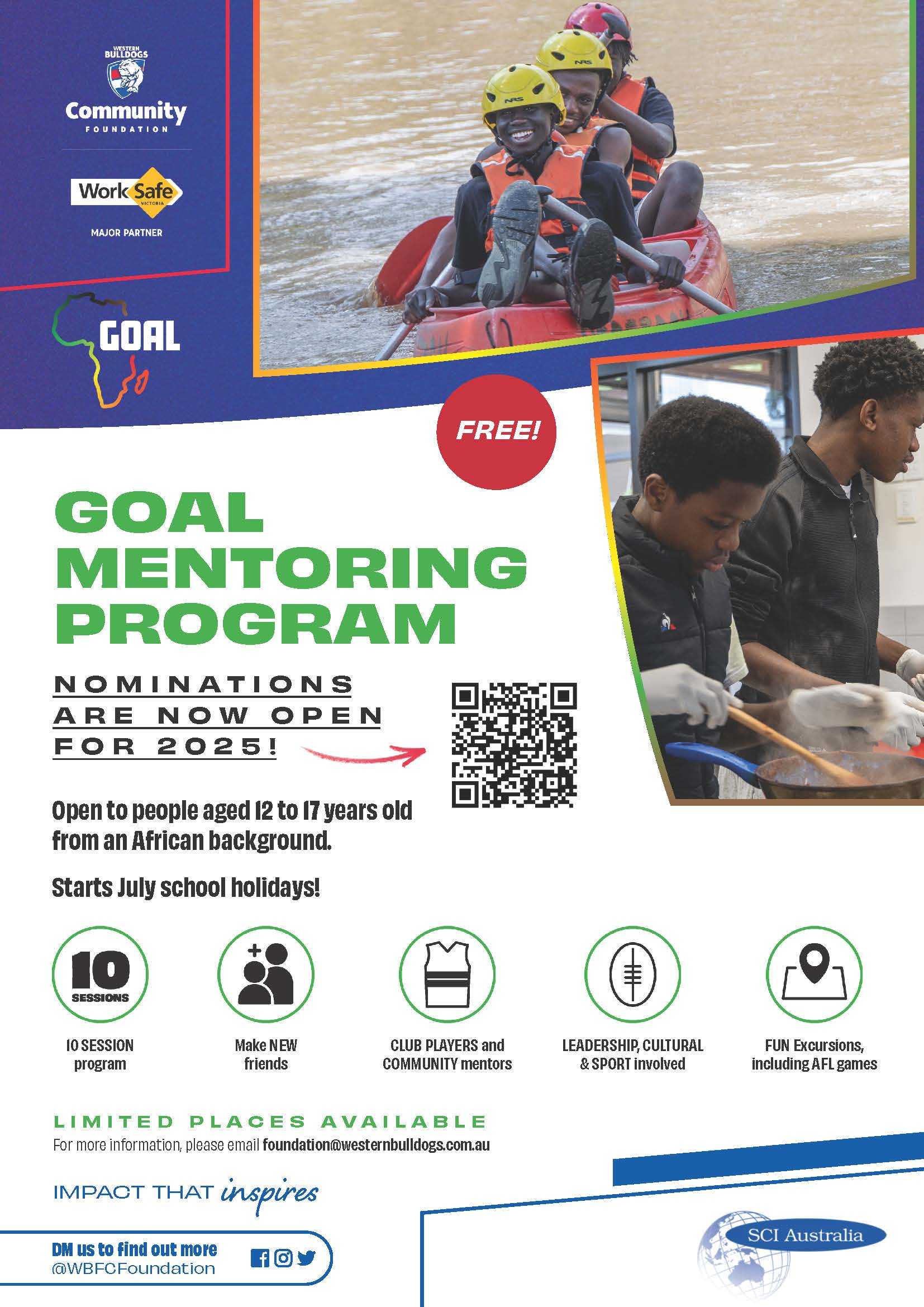
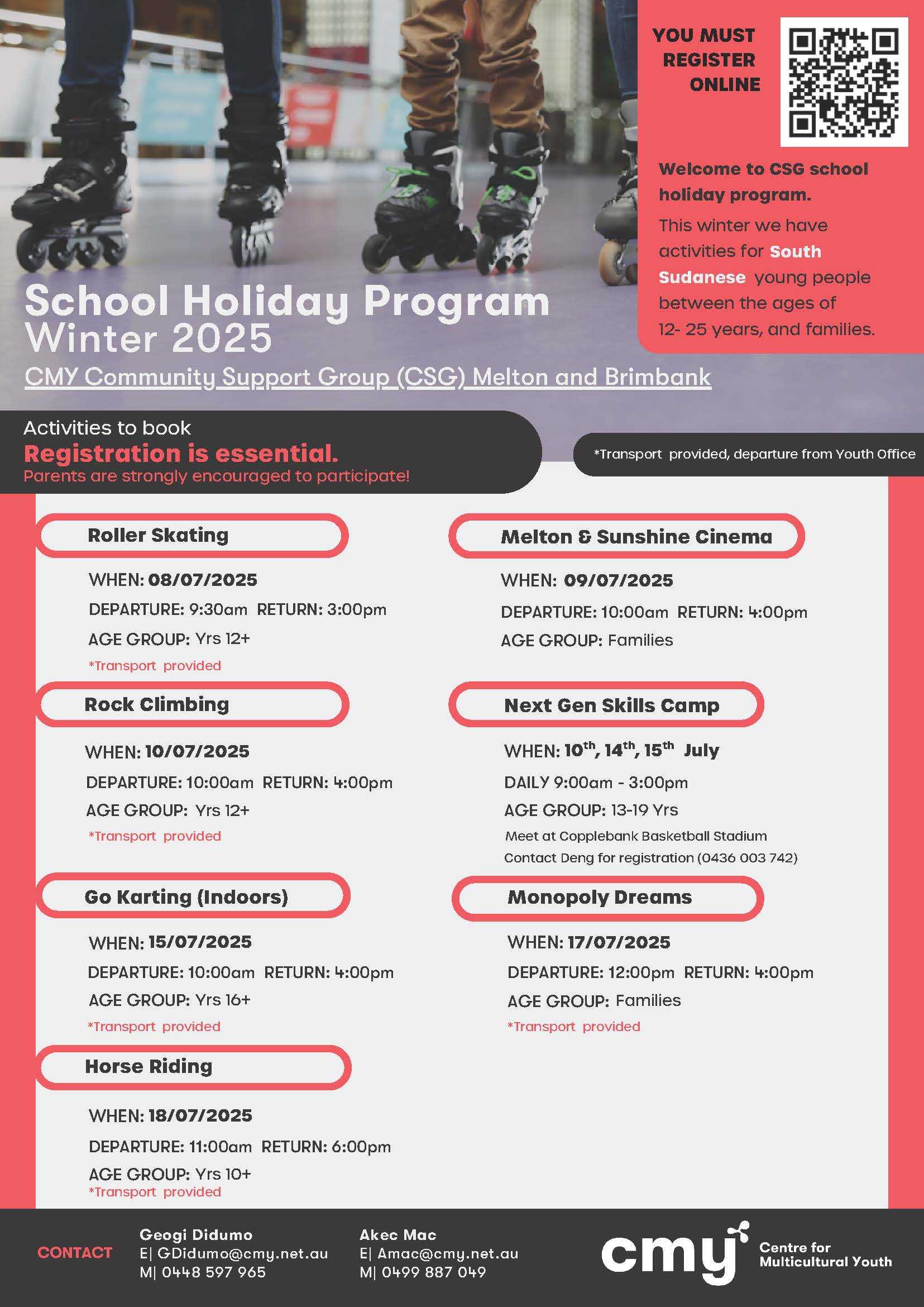
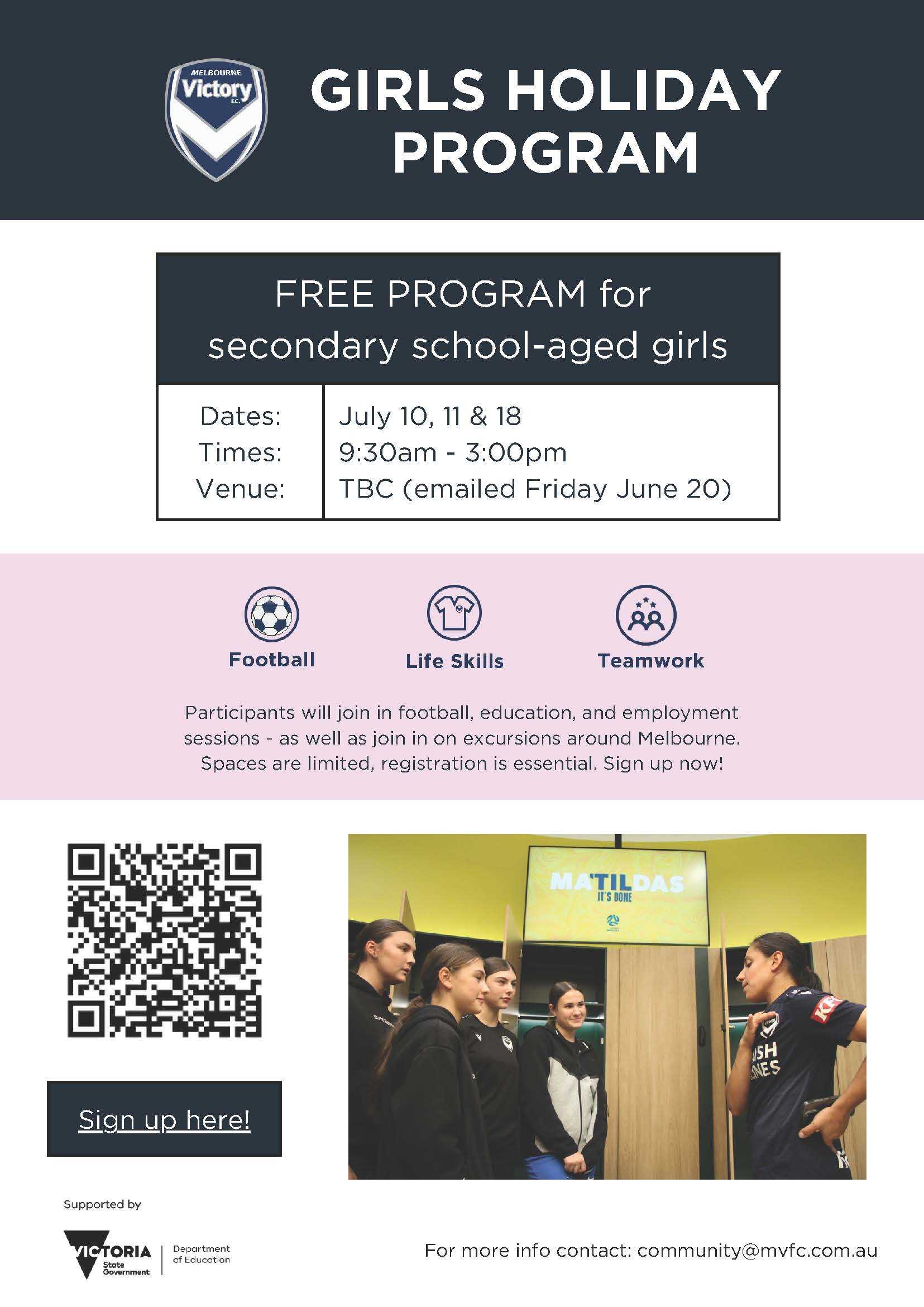
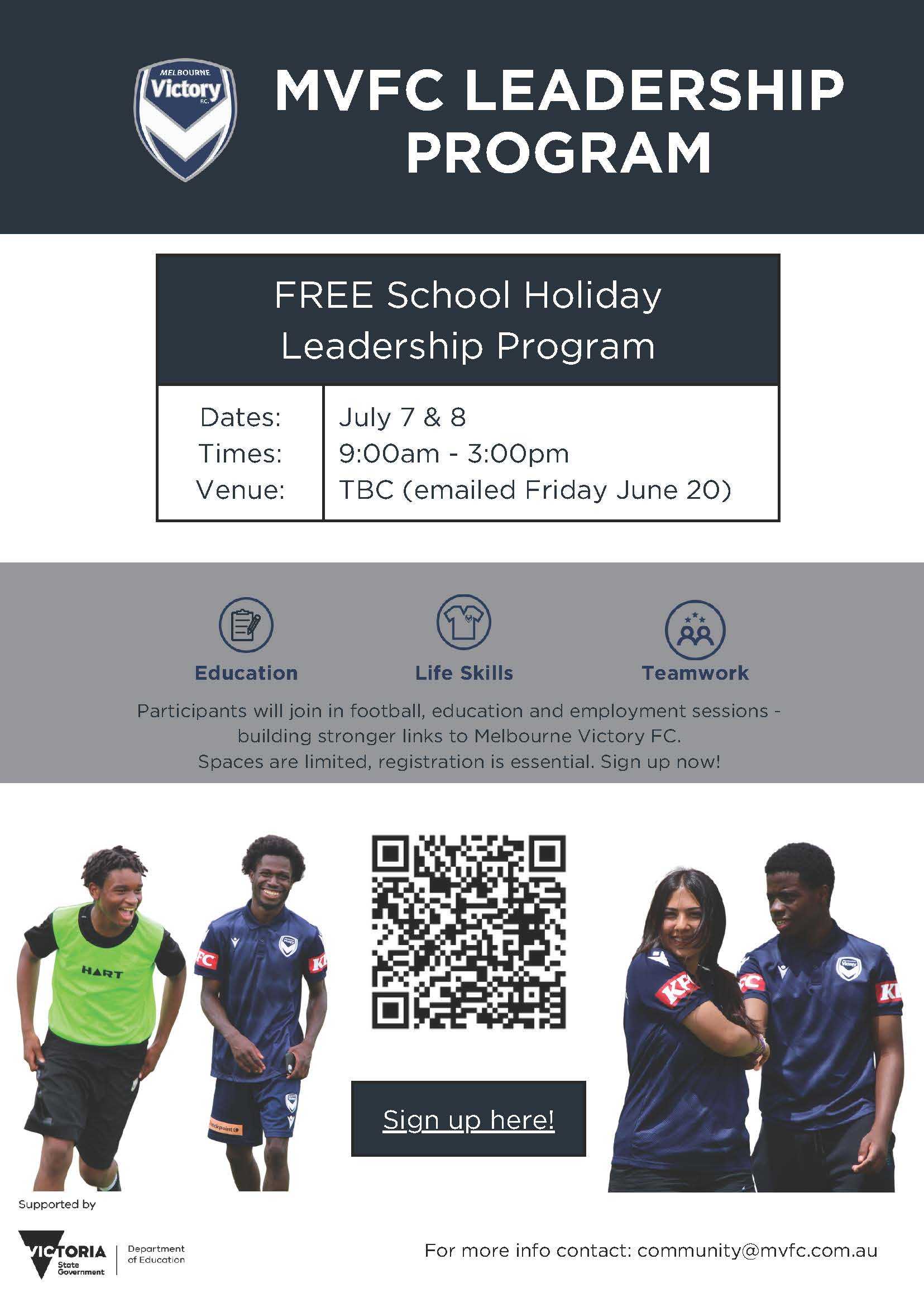
Term 3 Important Dates
Monday 21 July - Staff Professional Learning Day (No students on site)
Tuesday 22 July - Students first day of Term 3
Friday 15 August - Feast of the Assumption Mass
Monday 25 August - Student Free Day
Friday 05 September - Father's Day Mass and Breakfast
Friday 12 September - R U OK Day
Friday 19 September - College Assembly and Final Day of Term

Student Events and Activities
Semester 1: House Soccer Tournament
In a thrilling showdown, Galgani B secured a hard-fought victory over Lorenzo A with a final score of 1–0.
The match kicked off with high energy, and it was Kiedus Yosef from 7E who made an early impact, scoring the first and only goal of the game.
Despite Lorenzo A's persistent efforts and several close attempts to equalise, Galgiani’s defence held strong.
As the clock ticked down through the 20-minute match, tension built on both sides. Lorenzo A showed determination and resilience, but Galgani B’s teamwork and composure under pressure ultimately sealed their win.
The final whistle confirmed Galgani B’s triumph, highlighting their sportsmanship, courage, and unity throughout the game.
Quote of the day: "We played with heart, we played with pride – in the end, we are all winners." 🏆
Thank you, team, for your amazing support! The community wouldn’t be a strong community without you.
Brennan Fun Run
Our second annual fun run in honour of our late Principal, Robert Brennan proved popular amongst both staff and students.
The afternoon of the 30th of June proved to be clear and cold, perfect weather for all our participants who were walking or running to raise money for the Smith Family.
If you would like to contirbute before fundraising closes, you can do so here: https://events.thesmithfamily....









Term 2 Assembly
Celebrating the achievements of our students is an important part of our community building efforts. Congratulations to all the students who received a Principal's Award or Art Award at our most recent Assembly.












Sacred Heart Day
One of the biggest days in our calendar, this years Sacred Heart day was no different!
Students played games, purchased food and of course supported one another in our annual talent quest.
Thank you particuluary to the staff who were such good sports and got up on stage for the staff act, or very bravely faced the dunk tank!
































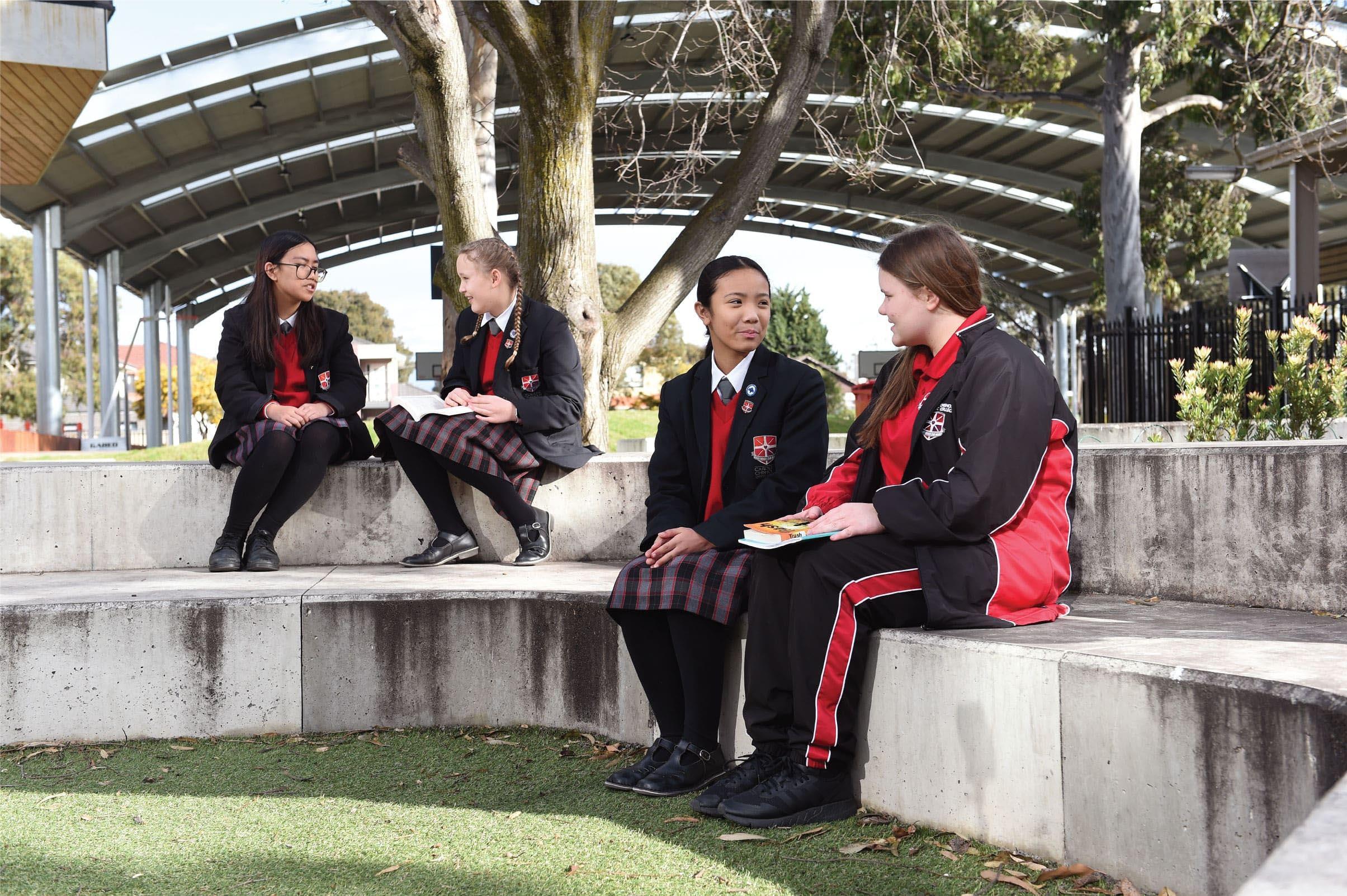
Prayer
Loving Lord Jesus,
As we come to the end of Term 2, we pause to give thanks for the many blessings you have poured into our school community.
We thank you for the strength to learn, the courage to grow, and the grace to persevere.
In moments of challenge and joy alike, your Sacred Heart has been our refuge and guide.
May your heart—burning with love and mercy— continue to inspire us to show compassion, to forgive generously, and to serve selflessly.
Bless our students, staff, and families as we take time to rest and recharge.
Help us return with renewed hearts, ready to follow your example with faith and hope.
Sacred Heart of Jesus, we place our trust in you.
Amen.




 QUICKLINKS
QUICKLINKS




